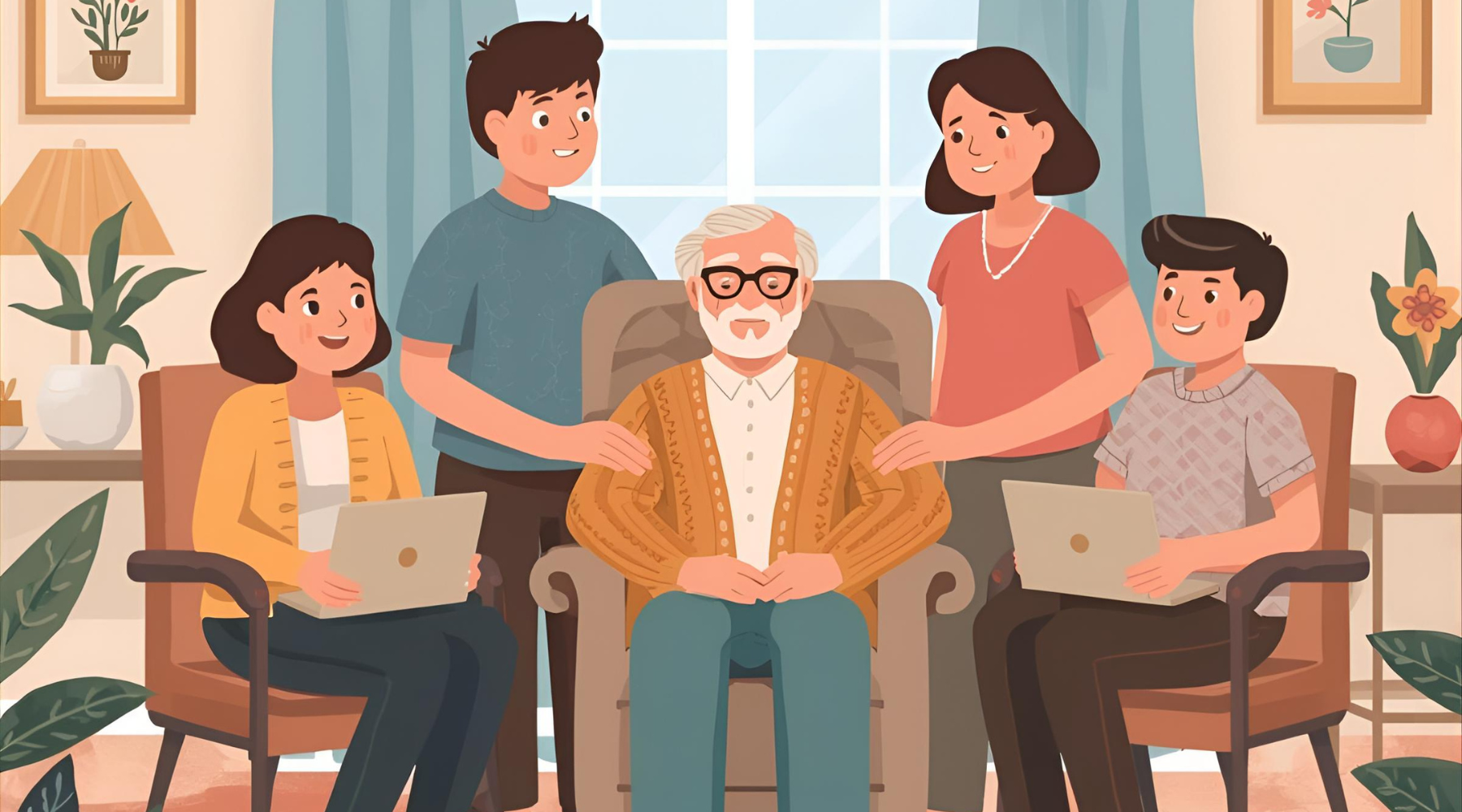

Family Access Is the Future of Resident Engagement
We often talk about resident engagement in the context of life enrichment: programs, calendars, participation. But a resident doesn’t experience these things in a vacuum. They experience them in relationship: with other residents, with staff, and with family and loved ones.
And those loved ones are more involved than ever. They’re expecting more, too.
Many residents moving into communities today have adult children who have grown with constant access to what is happening in their loved one’s life. Today’s families (which often include friends and neighbours) aren’t just looking for occasional newsletters and holiday invites. They want real-time visibility into their loved one’s life and care, and they want to know that their involvement makes a difference.
In senior living, the term care circle refers to the extended group of people who support a resident emotionally, legally, logistically. It can include:
The support and communication systems in your communities need to support how this broad network can keep engaged in a resident’s life.
Traditionally, much of the communication between communities and families has centered around the POA: the person legally authorized to make decisions.
But emotional support doesn’t begin and end with legal paperwork. There’s a difference between permission and participation. And both matter.
When we expand access and communication thoughtfully across the care circle, we create stronger support systems for residents, especially as their cognitive or physical needs evolve.
As your residents progress from Independent Living to higher levels of care, their ability to communicate preferences or needs may shift. That’s where enabling a well-informed care circle becomes essential. A community portal is a great way to include the care circle in a way they are familiar with.
Here’s what thoughtful access can allow:
Of course, not every care circle member should have the same level of access. In Welbi’s community portal, permissions can be tailored by role and relationship. It’s important to ask questions like this to set up your roles effectively:
This kind of flexibility is key to building trust with families while respecting residents' autonomy and privacy.
When families are informed and empowered, a few things happen:
And when a resident’s world becomes smaller – whether because of memory loss, illness, or mobility – that care circle often becomes their most powerful connection.
Let’s give them the tools to stay connected.
Thanks for reading,
Elizabeth Audette-Bourdeau
CEO, Welbi
Katie Stewart
Katie is a member of Welbi’s Customer Experience team! She has a background in communications and recreation and is passionate about older adults, exercise, coffee and people.
Holly Mathias
Holly is a member of Welbi’s Marketing team! She has a background in communications and marketing, and is a compassionate individual who loves team work, story telling, and wellness.
Wendy Riopelle
Wendy is a student in the Honours BA in English program at the University of Ottawa, where she has won numerous awards for her writing.
Want to get articles like this one fresh in your inbox when they’re published? Sign up for our newsletter and join the Welbi Family today.
Want to learn more about how Welbi can assist with your community’s QAPI program? Book a live demonstration of Welbi today!
Join our mailing list to get our latest newsletters straight in your inbox.